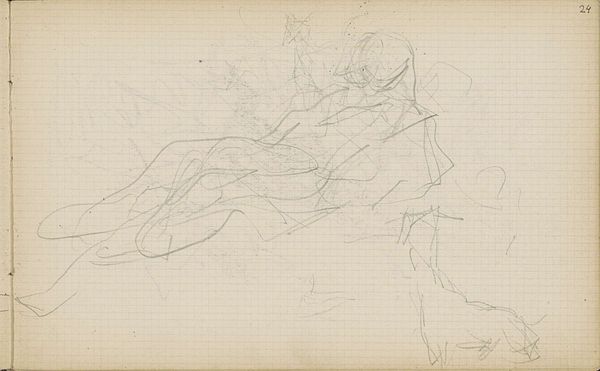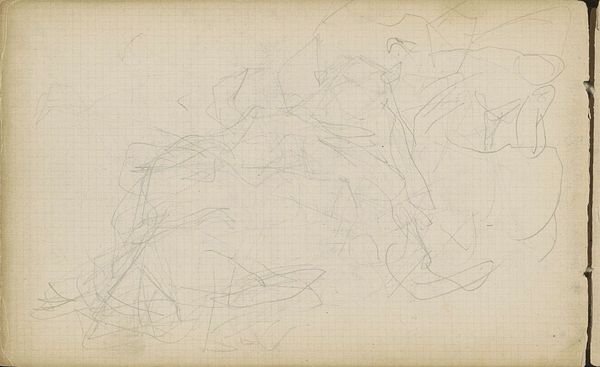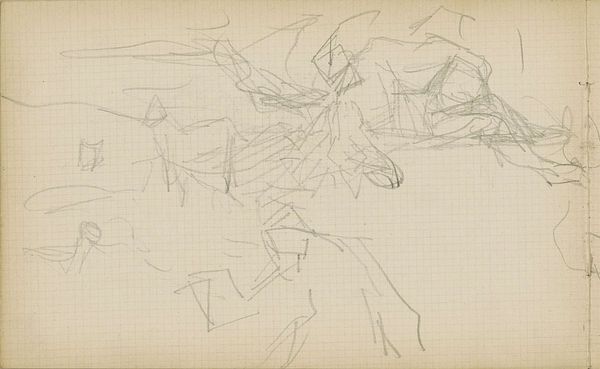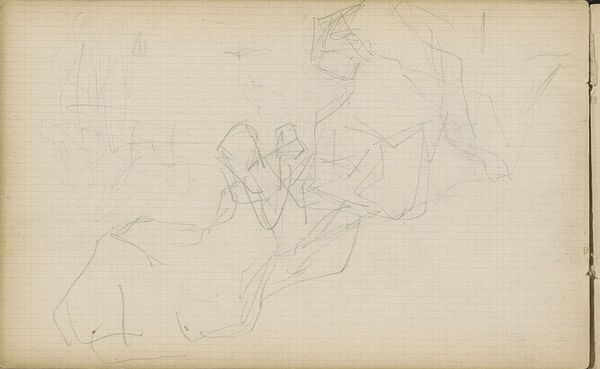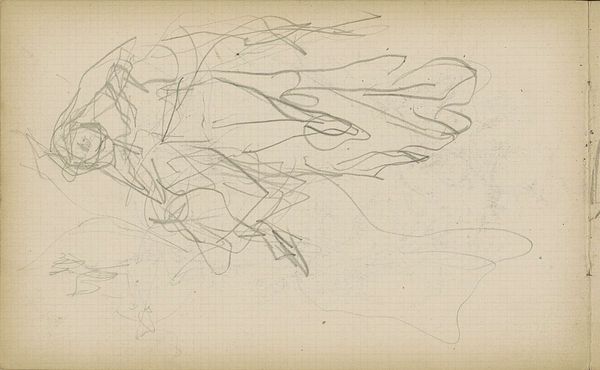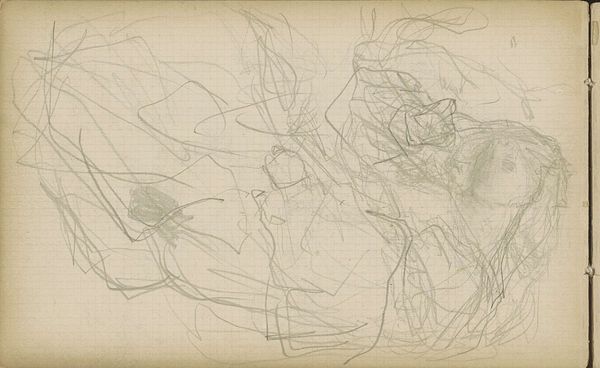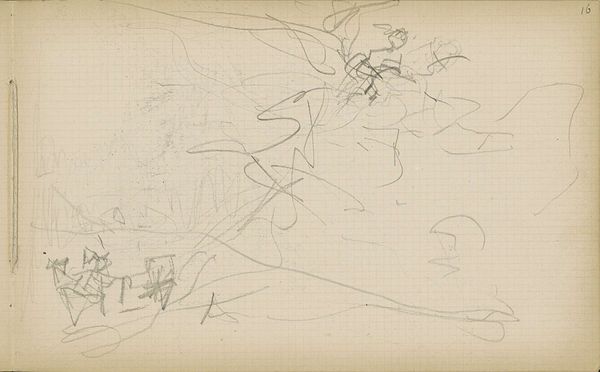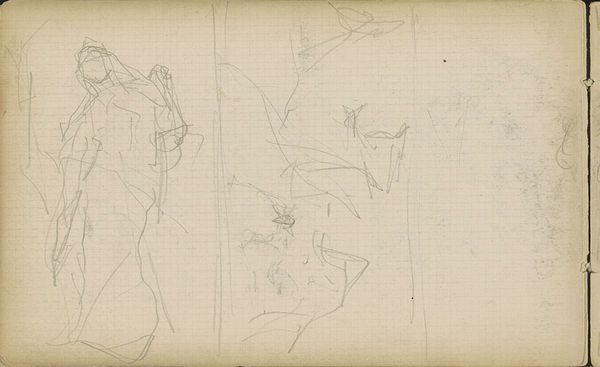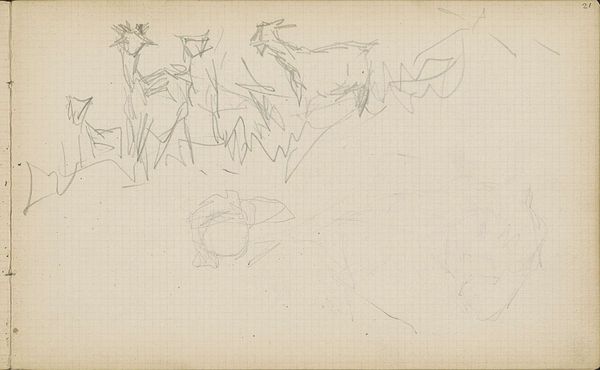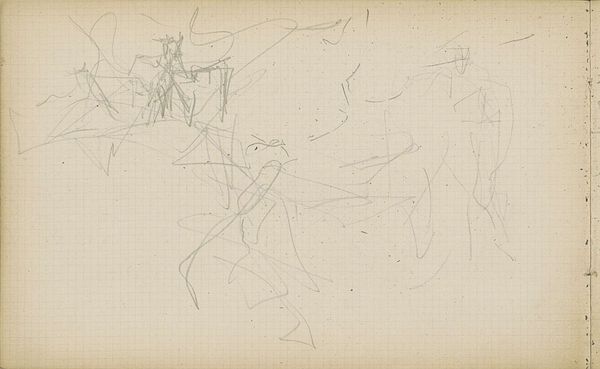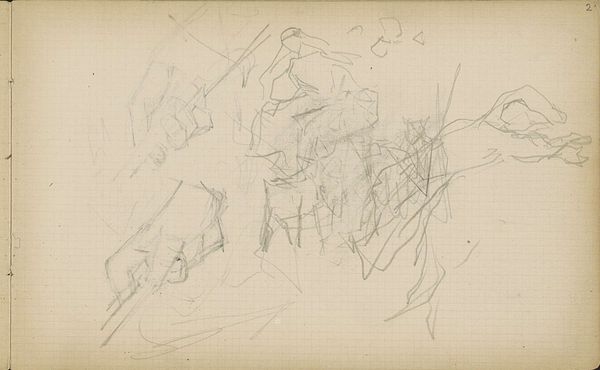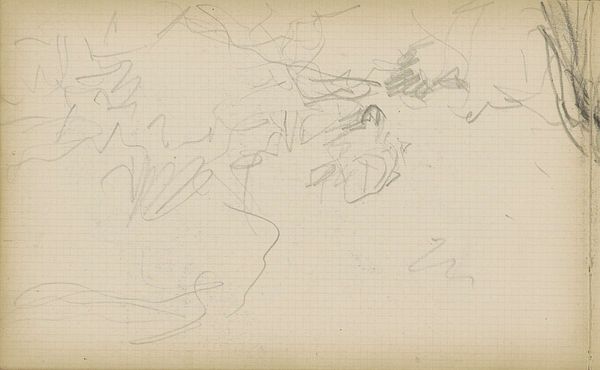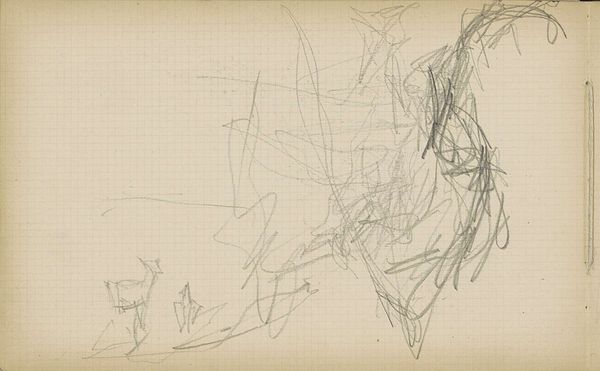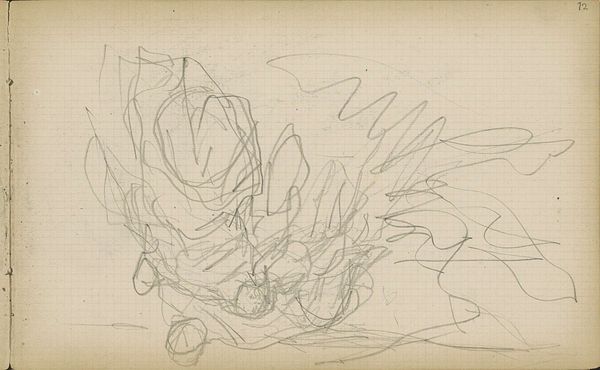
drawing, paper, pencil
#
drawing
#
impressionism
#
pencil sketch
#
figuration
#
paper
#
personal sketchbook
#
pencil
#
line
#
sketchbook drawing
#
academic-art
Copyright: Rijks Museum: Open Domain
Curator: Welcome. Before us we have a pencil drawing by Matthijs Maris entitled "Studie," dating from around 1849 to 1917 and currently residing in the Rijksmuseum. Editor: It feels… elusive, like a half-remembered dream fading as you try to grasp it. Scribbles dance across the page. It reminds me of trying to sketch movement – fleeting gestures caught mid-air. Curator: Maris was known for his evocative, dreamlike style, deeply rooted in the traditions of the Hague School, a movement heavily influencing Dutch painting at that time. I think you could say Maris’ work in particular captures the melancholic spirit of fin-de-siècle Europe. This sketch could offer insight into gender roles in academic artistic study and also figuration—challenging idealized forms prevalent during that era, embracing instead the subjectivity of vision and experience. Editor: Interesting! Melancholy for sure. But there’s a playful energy too, don’t you think? Like Maris was wrestling with form, playfully searching and losing things. It almost makes me think of some deconstructed poem that tries to put something familiar, such as figures and sketches, back together but not completely or accurately. I'm also drawn to the materiality of the paper, it invites exploration of artistic practice beyond just pencil. Curator: I appreciate you drawing out the deconstruction element because Maris was challenging societal norms through his representation of bodies as amorphous entities or fragments in the face of the rise of industry. Consider how the figure study embodies social anxieties surrounding labor and gender identity at the end of the nineteenth century. Editor: Absolutely. These fragments speak volumes. Like snapshots of fleeting moments, they ask questions about being—incomplete, messy, and vulnerable. The sparseness makes me reflect upon human temporality; like we are always becoming or unbecoming. Curator: Yes. These fragmented sketches speak directly to the instability of social constructs. Ultimately, it opens up to complex historical interpretations on art and the social landscape of the time. Editor: For me, it’s more a reminder that perfection isn't necessarily the goal and in our constant becoming, embracing the incomplete and imperfect aspects can actually become the most revealing.
Comments
No comments
Be the first to comment and join the conversation on the ultimate creative platform.
